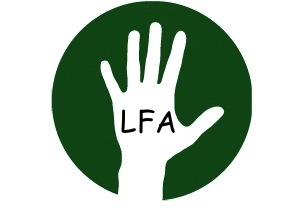About Me
My introduction to autism came in 2000 when I was in high school and my younger brother (who was in eighth grade at the time) was diagnosed with Asperger’s Syndrome. I didn’t know a lot about autism then, but I had lived side-by-side with my brother long enough to begin understanding what autism can look like and some of the struggles autistic people face in an unaccommodating environment.
I understood autism more intimately when my first son was born in 2008.
He was born three months before his due date. His prematurity led to a six-month hospitalization, throwing my husband and I into a medical whirlwind. He came home with a trach and a ventilator among other medical equipment necessary for life. As he outgrew his need for life support, we had the challenge of sorting out all of his developmental delays, trying to determine if they were expected delays due to his extreme prematurity and medical battles or indicators of something more permanent. Eventually he was diagnosed with diplegic ataxic cerebral palsy at age three and classic autism at age four.
My son’s amazing journey has introduced me to disability culture and inspired me to advocate for all autistic children and adults in ways I never before understood how to. I now have two other children who also inspire me to write and speak about disability stereotypes and acceptance. I am still learning every day and enjoy engaging with people from all sides of the autism community.
About Learn from Autistics
After my son was diagnosed with cerebral palsy and autism, I became interested in connecting with other families who had children with disabilities, and immersed myself in the advice of medical specialists in order to understand more about my son’s diagnoses and how my husband and I could help him.
But I felt limited in my pursuit of the medical, psychological, and behavioral advice from the “experts” and began seeking advice from autistic individuals themselves. I knew there were well-meaning organizations (led by doctors, scientists, and researchers) whose mission was to help parents sort out the fact from the fluff within the media barrage of treatments, therapies, medications, and diet advice. But I wanted to know how autistic individuals felt about these ideas.
Parents of autistic children are vulnerable to all sorts of manipulation, some of them desperate to buy or try anything new that is recommended by an autism “expert.” Most parents don’t want to foolishly invest in a plan that won’t produce results, nor would they push their children to participate in something harmful. So I began interviewing autistic adults and learning what parents, friends, or teachers had done for (or to) them that helped or hurt their development. This process resulted in a book that will be published in Spring 2016.
It didn’t take long to realize that while I was grateful for the knowledge base I’d obtained, not everything I learned from the “experts” about autistic people was true. My writing efforts are now focused on creating works that constantly engage with the autistic community and offering practical, easy-to-follow resources for parents who are trying to advocate for their children and teaching their children to self-advocate.
Autism acceptance must begin with the understanding that autistic people are valuable and that they must be included in the public conversation about autism.
About This Blog
The goal of this blog is to connect parents with autistic voices. It includes information and practical resources on autistic child development, education, and advocacy. This blog will also feature monthly interviews with autistic individuals. If you are interested in being interviewed, please contact jennagensic(at)learnfromautistics(dot)com.

